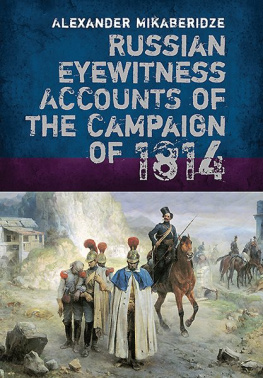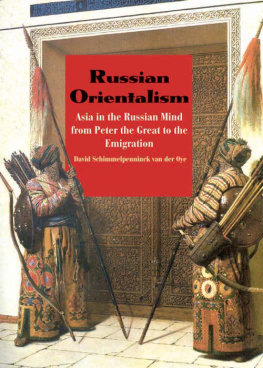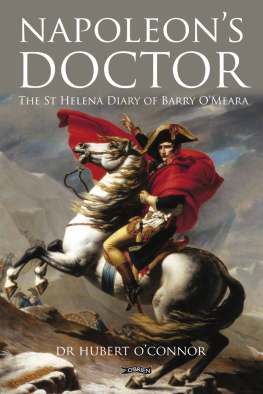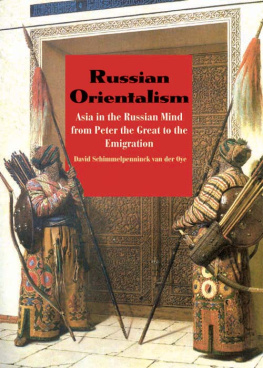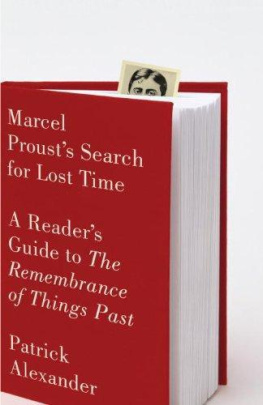Patrick OMeara - The Russian Nobility in the Age of Alexander I
Here you can read online Patrick OMeara - The Russian Nobility in the Age of Alexander I full text of the book (entire story) in english for free. Download pdf and epub, get meaning, cover and reviews about this ebook. year: 2019, publisher: Bloomsbury Academic, genre: Art. Description of the work, (preface) as well as reviews are available. Best literature library LitArk.com created for fans of good reading and offers a wide selection of genres:
Romance novel
Science fiction
Adventure
Detective
Science
History
Home and family
Prose
Art
Politics
Computer
Non-fiction
Religion
Business
Children
Humor
Choose a favorite category and find really read worthwhile books. Enjoy immersion in the world of imagination, feel the emotions of the characters or learn something new for yourself, make an fascinating discovery.

- Book:The Russian Nobility in the Age of Alexander I
- Author:
- Publisher:Bloomsbury Academic
- Genre:
- Year:2019
- Rating:5 / 5
- Favourites:Add to favourites
- Your mark:
- 100
- 1
- 2
- 3
- 4
- 5
The Russian Nobility in the Age of Alexander I: summary, description and annotation
We offer to read an annotation, description, summary or preface (depends on what the author of the book "The Russian Nobility in the Age of Alexander I" wrote himself). If you haven't found the necessary information about the book — write in the comments, we will try to find it.
The Russian Nobility in the Age of Alexander I — read online for free the complete book (whole text) full work
Below is the text of the book, divided by pages. System saving the place of the last page read, allows you to conveniently read the book "The Russian Nobility in the Age of Alexander I" online for free, without having to search again every time where you left off. Put a bookmark, and you can go to the page where you finished reading at any time.
Font size:
Interval:
Bookmark:


RUSSIAS NOBLE ESTATE ( SOSLOVIE )
RUSSIAN SOCIETY AND NOBILITY FROM 1801
DEFINITIONS OF THE NOBILITYS STANDING
EDUCATING THE RUSSIAN NOBILITY
PARENTAL SUPERVISION, FOREIGN TUTORS AND LANGUAGE ACQUISITION
EDUCATIONAL ASPIRATION AND INSTITUTIONAL REALITY
THE NOBILITY IN LOCAL GOVERNMENT AND ADMINISTRATION
THE NOBILITY AS OFFICE HOLDERS
THE NOBLE ASSEMBLY IN PROVINCIAL LIFE
THE TSAR, THE NOBILITY AND REFORMING RUSSIA
THE ALEXANDRINE NOBILITY: POLITICS AND POWER
ALEXANDER I, THE NOBILITY AND CONSTITUTIONALISM
GOVERNMENT, NOBILITY AND THE PEASANT QUESTION
APPROACHES TO SERF REFORM FROM ABOVE
APPROACHES TO SERF REFORM FROM BELOW
THE RADICAL NOBILITY CHALLENGES AUTOCRACY
GOVERNMENT AND THE NOBILITY: REFORM VERSUS CONTROL
THE SOCIAL AND POLITICAL CULTURE OF THE DECEMBRISTS
THE DECEMBRISTS FAILURE TO RADICALIZE THE RUSSIAN NOBILITY
Font size:
Interval:
Bookmark:
Similar books «The Russian Nobility in the Age of Alexander I»
Look at similar books to The Russian Nobility in the Age of Alexander I. We have selected literature similar in name and meaning in the hope of providing readers with more options to find new, interesting, not yet read works.
Discussion, reviews of the book The Russian Nobility in the Age of Alexander I and just readers' own opinions. Leave your comments, write what you think about the work, its meaning or the main characters. Specify what exactly you liked and what you didn't like, and why you think so.


